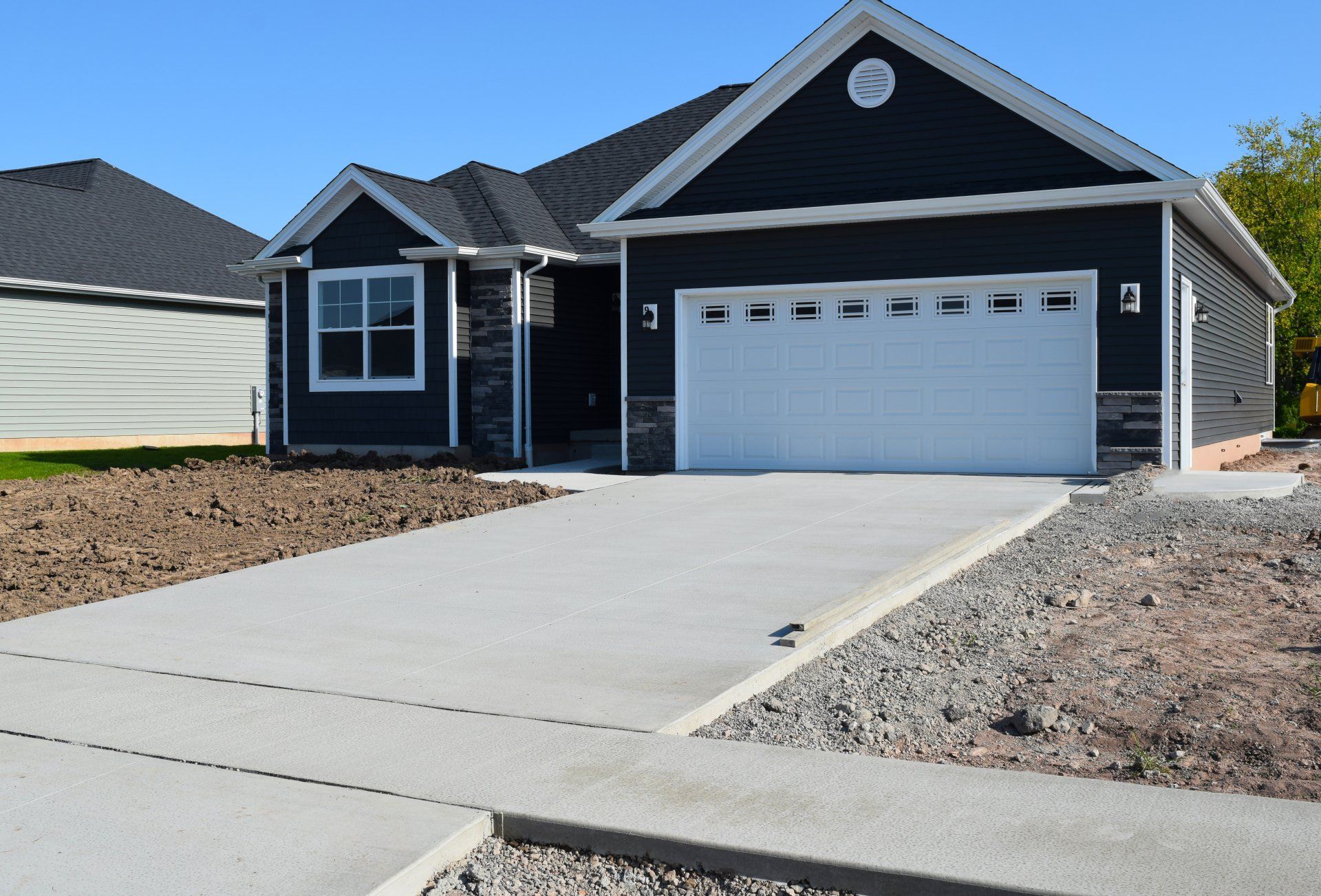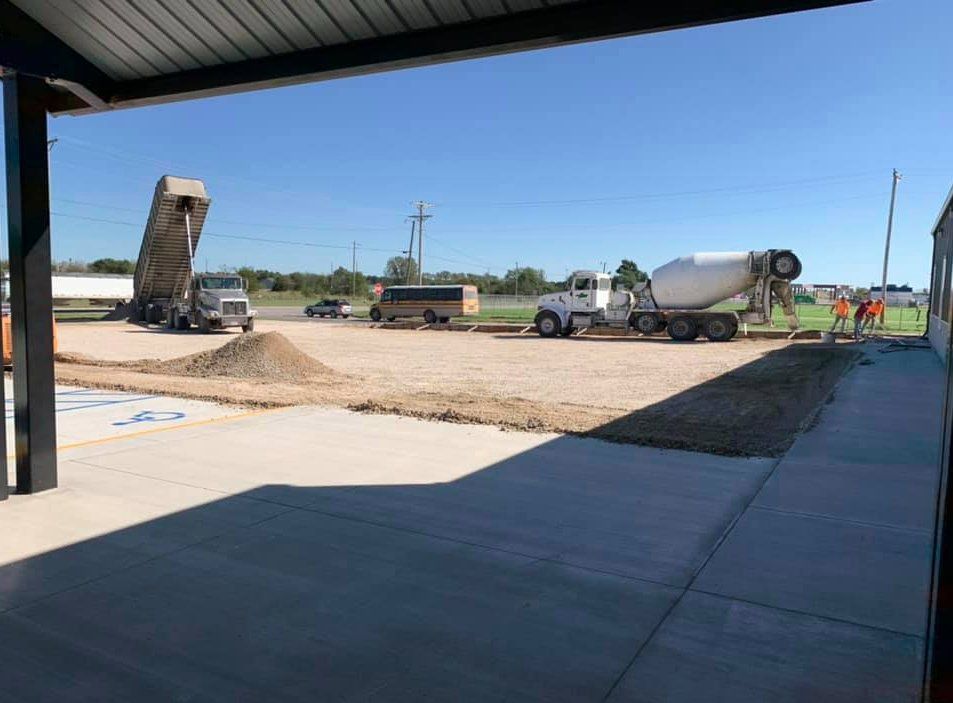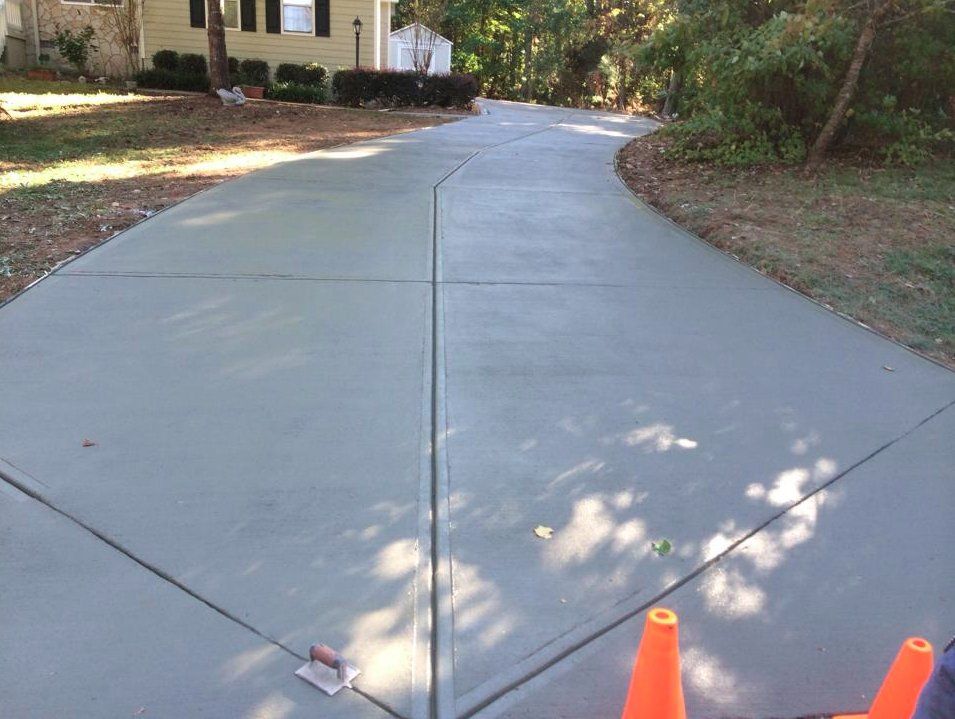DOES CONCRETE SLAB, PATIO, DRIVEWAY NEED REBAR?
Concrete Contractors, Lincoln, Nebraska | C&C Contractors

Do you want to install a concrete slab, patio, or driveway? Are you unsure whether your project requires rebar in concrete? Several factors affect the design of the pour and whether rebar is needed.
What Is Concrete Rebar?
Reinforcing bar, or rebar, are steel bars used to lessen the chance of concrete cracking due to tension forces. Concrete has a high compression strength but can crack or break if it is not properly supported underneath or from within. Rebar has been used to strengthen the tensile strength of concrete for over 150 years.
Rebar is made of hot-rolled steel in various gauges and is used to strengthen concrete from within. It's typically laid in a grid pattern, formed into a steel web, or placed in parallel strands.
The stronger the end product, the thicker the bar, and the more frequently it is placed.
Steel improves the ability of concrete to withstand horizontal or vertical forces or stresses. It distributes forces through the concrete rather than allowing them to centralize and crack. Steel reinforced concrete is stronger and more stable than concrete without the rebar. Because of the ridges that help it bond firmly with the concrete, rebar is also known as deformed steel.
Does Concrete Always Need Rebar?
Concrete slabs or driveway pads do not require reinforcing for vehicles, light trucks, or lounge chairs. Rebar is recommended if the concrete must support heavy machinery, heavy-duty cars, a hot tub, a spa, or a concrete pizza oven. Reinforcement is also recommended for concrete that will rest on the backfill or other disturbed or weak ground.
Rebar strengthens and remains stable concrete by reducing cracking. Concrete with reinforcing steel can withstand weight, vibration, tensile stresses, and even shifts within the soil strata. It helps the concrete last longer by reducing shifting, cracking, and breaking.
The steel in reinforced concrete prevents horizontal, vertical, and lateral separation or movement. Under tensile stresses and expansion/contraction forces, concrete without reinforcing steel is more likely to crack and separate. Rebar allows larger and thicker concrete pours by lowering the forces that prey on concrete.
TYPES OF REBAR
There are several different kinds of rebar to choose from. Welded wire, expandable metal, stainless steel, sheet metal, and epoxy coated are the most common. Each type is best suited for various projects, so do your research before determining which type of rebar is best for you.
Welded Wire Fabric: Typically used slab-on-ground-slabs on compacted ground.
Expandable Metal: This wire mesh option is an excellent choice for smaller home improvement projects.
Stainless Steel Rebar: Stainless steel has great corrosion resistance. This is an excellent option for any concrete projects in corrosion-prone areas. This type of rebar is typically more expensive than alternative options.
Sheet Metal: This option is used most commonly for concrete floors, roofs, and stairs.
Epoxy Coated Rebar: Epoxy is even more corrosion-resistant than stainless steel. This type of rebar is one of the most durable and expensive.
When Is Rebar Necessary in Concrete?
Rebar is an unnecessary investment in all concrete slabs, but there are situations when a steel rebar web should be used. Commonly, large pads require steel reinforcing to avoid bending and cracking caused by freeze-thaw and other tensile forces. If uncertain, it is recommended to consult a Structural Engineer or similar professional. Here are some instances in which rebar is required:
Slab
For slabs thicker than 5 inches, a rebar web is required to prevent cracking. Those that may support structures built on their perimeter or within it should also be strengthened.
Reinforce slabs span weak or disturbed ground or run over drainage pipes or ditches. Slabs that will support heavy equipment, RVs, dump trucks, or materials such as building supplies or liquid barrels should also be reinforced.
Concrete Patio
Patios near buildings frequently bridge backfilled ground and, like those on slopes or weak ground, should have added tensile strength. A reinforcing bar is required when adding a hot tub, spa, outdoor kitchen, fireplace, or pizza oven. Additionally, patios that may one day be enclosed or carry a permanent structure, such as a pergola, should be reinforced.
Concrete Driveway
A 4"-thick concrete driveway for vehicles or ½-ton trucks does not need hot-rolled steel to last for decades. Thicker concrete, driveways with poor ground support, and driveways that often sustain heavy loads or vehicles should be strengthened.
C&C Concrete Contractors in Lincoln, NE
What is rebar? As you can see, rebar is a very important part of concrete construction. The real question is, do you have the right tools to work with it once you've got the rebar you need? C&C Concrete Contractors in Lincoln, NE, offers a variety of options to make your job easier.
You might also like
Book a Service Today
We will get back to you as soon as possible
Please try again later
C&C Concrete Contractors
Navigation
Navigation
Services
Working hours
- Mon - Sat
- -
- Sunday
- Closed
Copyright C&C Concrete Contractors | Proudly Powered by Snapps


